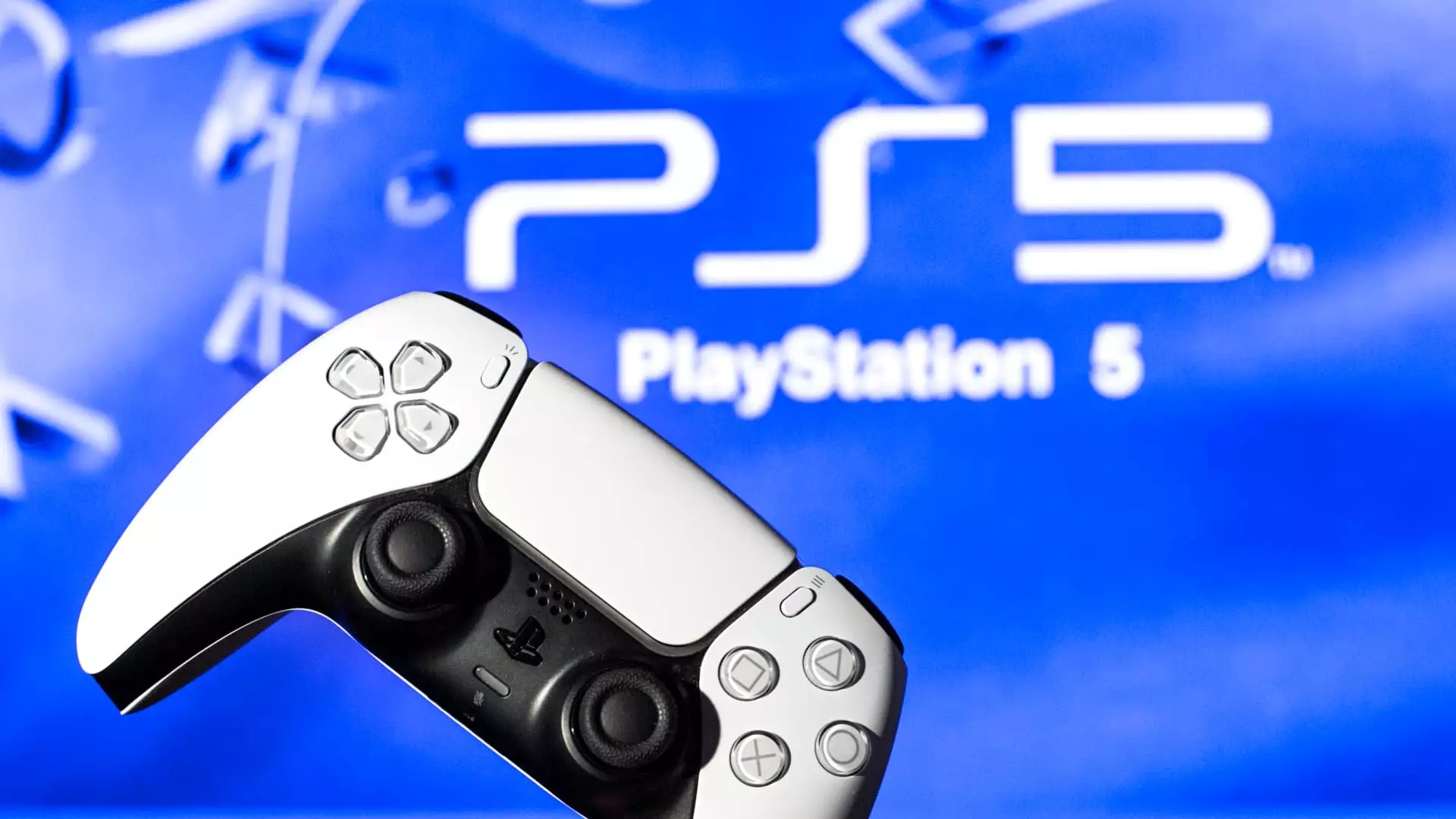Sony Corporation, a leader in the global tech industry, recently reported financial results that exceeded expectations and showcased its robust gaming business. The company has adjusted its sales forecasts upwards for the fiscal year, reflecting confidence stemming from increased revenues and a significant boost in operating profit. In an era of digital transformation, Sony’s performance in the gaming sector highlights not just resilience but innovative strides amid ongoing market challenges.
In the fiscal quarter that concluded in September, Sony announced a revenue of 2.97 trillion Japanese yen (approximately $19.4 billion). Although this figure slightly fell short of market analysts’ expectations of 3.03 trillion yen, it still represented a commendable 9% increase compared to the previous year. Conversely, the operating profit surged to 455.1 billion yen, a remarkable 73% rise year over year, far surpassing expectations of 336.07 billion yen. This divergence in revenue versus operating profit indicates a growing efficiency in Sony’s business operations, where cost management could be playing a critical role.
Setting an ambitious tone for the remainder of the fiscal year, Sony revised its revenue target for 2025 to 12.7 trillion yen, a modest adjustment from its prior estimate of 12.6 trillion yen. Importantly, the company’s operating profit forecast remains consistent at 1.3 trillion yen, underscoring stability and an adherence to strategic goals.
Sony’s gaming and network services division, which encompasses its highly successful PlayStation brand, was a key driver of revenue growth, contributing 1 trillion yen and growing 12% year on year. This segment’s resilience is largely attributed to the rising popularity of digital downloads and subscription services, such as PlayStation Plus. Nevertheless, this growth narrative is tempered by a notable dip in hardware sales; the company reported a 22% decrease in PlayStation 5 console shipments year-over-year, totaling 3.8 million units.
This decline can be largely attributed to an oversaturated console market, characterized by a temporary stagnation in blockbuster game releases and a general shift towards digital media consumption. Despite these challenges, there were bright spots, specifically in game software sales which increased by 28% to reach 612.3 billion yen for the quarter. New titles, such as Astro Bot, have also demonstrated strong market performance, showcasing the potential for continued interest in the gaming portfolio.
The gaming landscape is poised for an exciting resurgence, with analysts predicting a revival driven by upcoming major releases, including a next-gen console from Nintendo and the highly-anticipated Grand Theft Auto VI. These factors are poised to reignite consumer enthusiasm for gaming hardware. The release of the upgraded PlayStation 5 Pro, equipped with enhanced graphics capabilities and improved game rendering speed, could further stimulate sales and capture gamer interest.
As Sony positions itself strategically ahead of these anticipated releases, the success of the PlayStation 5 Pro could potentially reverse the current downturn in hardware shipments. The synergy between advanced technology and marquee game launches is expected to create a compelling narrative where hardware and software sales mutually bolstered during peak gaming months.
Sony’s latest financial results reflect a commitment to growth through adaptability and innovation. The company’s ability to harness the competitive advantages of digital gaming and subscription models while navigating market challenges speaks volumes about its agile business structure. As the gaming industry prepares for a new wave of content and hardware releases, Sony stands at a critical juncture, positioned not only for immediate gains but for long-term sustainability. With a firm foundation bolstered by strong operating profits and an established brand, the company is likely to maintain its relevance and influence in the ever-evolving tech landscape.

